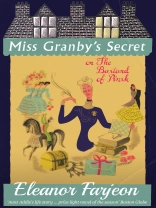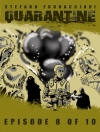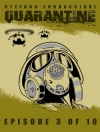How much did Aunt Addie know?
How much did she feel?
Aunt Addie better known to the world at large as Adelaide Granby, the fabulously successful author of 49 volumes of gushing, melodramatic Victorian romance. Upon her death in 1912, flowers and cards pour in, including one particularly lavish set ‘From Stanislaw’, whom her independent-minded, suffragette niece Pamela decides was ‘darling Aunt Addie’s Grande Passion.’ Pamela also inherits a stack of Aunt Addie’s secret papers, including youthful diaries and her unintentionally hilarious unpublished first novel, written when she was only 16, entitled The Bastard of Pinsk (a ‘bastard’, 16-year-old Adelaide was sure, being ‘A very noble Hero of Royal Blood.’)
As Pamela explores these documents and talks with those who knew her aunt when, seeking the real-life source of her romantic sensibility, the reader is drawn irresistibly into the intrigue. In a novel both sentimental and brutally honest, nostalgic for and horrified by the sentiments of the past, hilarious and poignant, all at once, the brilliant Eleanor Farjeon poses surprisingly powerful questions about what makes a love ‘real’ and how much one really needs to know to experience it…
This new edition features a superb introduction by twentieth-century women’s historian Elizabeth Crawford.
‘Naughtiness of a definitely mauve tint.’ Beatrice Sherman, New York Times
Yazar hakkında
Eleanor Farjeon, born on February 13, 1881, in London, England, daughter of Benjamin and Maggie (Jefferson). Farjeon was a renowned English author, poet, playwright, journalist and broadcaster. Home-schooled, she began writing at the age of five and quickly gained recognition, particularly in children’s literature. Her simplicity of style, combined with profound emotional depth, made her works accessible and enduring. She is perhaps best known for her hymn ‘Morning has Broken’ which gained international acclaim thanks to the recording by Cat Stevens. Throughout her career Farjeon maintained a close circle of literary friends and contributed to the World War II effort. She received numerous literary awards, including the Carnegie Medal in 1955, the Hans Christian Andersen Medal in 1956 for her novel ‘The Little Bookworm’, and the Regina Medal for children’s literature in 1956. The Children’s Book Circle present a prestigious annual Eleanor Farjeon Award. Farjeon never married but had a contented 30-year relationship with George Earle, an English teacher. After his death in 1949, she befriended actor Denys Blakelock, who wrote a memoir: Eleanor, Portrait of the Farjeon (1966). She passed away in Hampstead, London on June 5, 1965, leaving behind a rich legacy of enchanting tales and timeless poetry.











